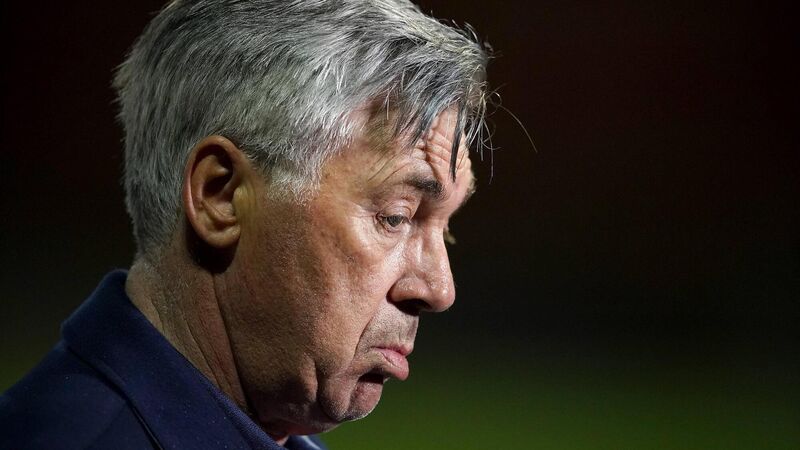Larry Ryan: Do grounds without fans help managers dragging clubs out of a rut?

QUIET LEADER: Carlo Ancelotti might be a bit long in the tooth and have fried bigger fish to have the same messianic zeal as Mikel Arteta, but his great trick is an air of calm. Of floating above it all.
At executive level they worry that sport will have changed beyond recognition by the time supporters are back in the stands. On the pitch, there may be some excitement.
Because grounds without fans may well prove a vital asset for a manager trying to drag a club out of a rut.









